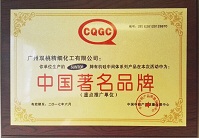
![]() E-mail: admin@gz-chemical.com
E-mail: admin@gz-chemical.com
Email us,best price and silane solutions for you!
Tel:+86 (20) 29035969

![]() E-mail: admin@gz-chemical.com
E-mail: admin@gz-chemical.com
Email us,best price and silane solutions for you!
Tel:+86 (20) 29035969


Proteins that normally reside inside cell nuclei have never been found in the blood, until
now. A new blood test developed at the Johns Hopkins University by Shih-Chin Wang and
Chih-Ping Mao—graduate students in Jie Xiao's lab in the Department of Biophysics and
Chien-Fu Hung's lab in the Department of Pathology—can identify individual molecules in
human blood samples with minimal detection errors. Among the molecules that they used
their new test to find was a mutated protein thought to be restricted to the inside of cells,
mostly within the nucleus. It is the first time that single-molecule imaging has been applied to
visualize disease-causing molecules in blood. They will present their research at the 63rd
Biophysical Society Annual Meeting, to be held March 2—6, 2019 in Baltimore, Maryland.
Wang and colleagues call their new approach Single-Molecule Augmented Capture (SMAC).
They used this new technique to detect molecules commonly screened for in standard blood
tests, like prostate-specific antigen. And they were also able to detect rare intracellular
proteins, secreted proteins and membrane proteins, including the cancer-associated proteins
mutant p53, anti-p53 autoantibodies and programmed death-ligand 1 (PD-L1).
Mutant p53 is a well-known tumor-specific nuclear protein and has never before been
detected in the blood, likely because current tests cannot detect its extremely low blood
concentrations. Wang and colleagues found mutant p53 or anti-p53 autoantibodies in
samples from patients with ovarian cancer, but not in patients without cancer. PD-L1 is also
found on the surface of some cancer cells and has recently been effectively targeted with
immunotherapy to combat cancer. Knowing whether or not a patient's tumor expresses PD-L1
is a crucial first step in this treatment—and SMAC may be able to identify cancers that have
PD-L1 at low levels that are undetectable by standard blood tests.
Guangzhou Double Peach Fine Chemical Co.,Ltd
Address: No 3401 Huangpu East Road, Huangpu District, Guangzhou, China
Tel:+86 (20) 29035969 Fax:+86(20)29035979
Tel/Wechat/Whatsapp:0086 13826126978 admin@gz-chemical.com